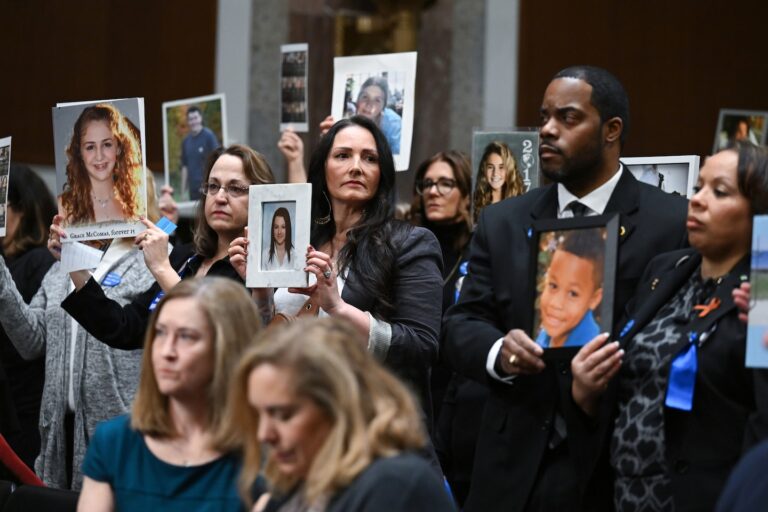Federal and state lawmakers have struggled to enact new protections for children online through legislation, facing opposition from tech industry groups that say such efforts would infringe on free speech and force companies to collect more data on users.
“The task force is asking the industry to do more,” Under Secretary of Commerce Alan Davidson, who co-chairs the group, said in an interview. “All of the agencies agree that what the industry has done so far is not enough.”
The report calls on tech companies to restrict features that attempt to maximise engagement among younger users, such as notifications that encourage users to continue interacting with the platform and autoplay features that display content continuously.
Get caught up in
Stories to keep you up to date
The administration also recommended that companies set more protective default privacy settings for younger users and limit features that encourage social comparison, such as social media “likes.”
The report’s scope extends beyond social media, with the government also calling for measures to curb “additive” design features across mobile video games.
Alvaro Bedoya, a Democrat at the Federal Trade Commission and a member of the task force, said the report largely avoided any discussion of online speech, focusing instead on how “social media is designed to keep young people online longer than they would like.”
Bedoya said that while the recommendations are voluntary in nature, the report “carries special weight” because it represents a variety of federal stakeholders “speaking with one voice.”
The task force, led by the Departments of Commerce and Health and Human Services, also included representatives from the FTC, the Department of Justice, the White House, and more.
Many of the recommendations mirror protections that federal and state lawmakers have tried to establish through legislation. Courts have blocked many of the state-level efforts following lawsuits from tech industry groups.
Meanwhile, congressional efforts to expand online safety and privacy protections have stalled on Capitol Hill, despite having broad bipartisan support.
“These guidelines ensure that, whatever happens in court, there is a clear blueprint for how to prevent some of the worst harms arising from social media,” Bedoya said.
In addition to its recommendations to tech companies, the report offers advice to parents and guardians on how to best protect children while using digital platforms and outlines what additional research is needed to understand the link between child harm and online activity. The report also urges Congress to pass legislation to address the issue, as Biden has previously called for.
Miriam Delphine Litmon, assistant secretary for mental health and substance use at the Department of Health and Human Services, said the report would help families develop plans for their children’s social media use and begin “screen-free initiatives.”
“We conducted focus groups across the country where families and caregivers spoke about their interest and need for more support and resources to help young people understand and engage around social media,” she said.


